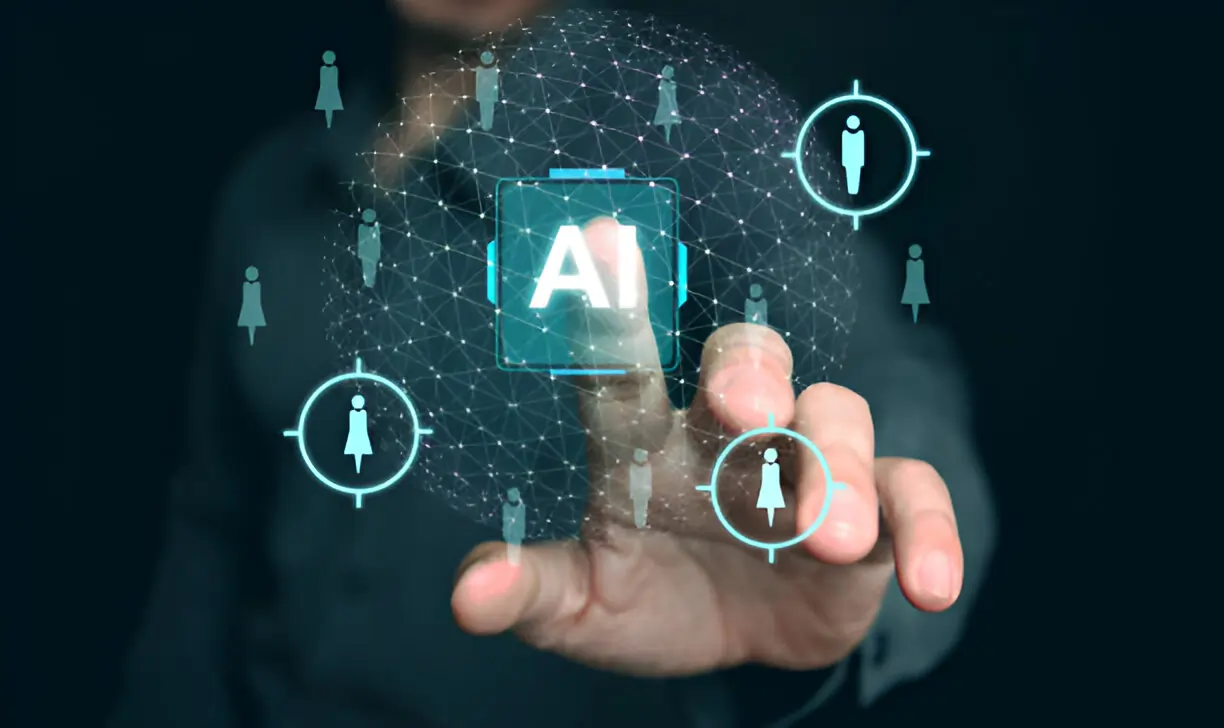The Role of AI in Human Interaction
The digits of progress are increasingly evident as Artificial Intelligence (AI) permeates various aspects of modern life, fundamentally transforming the dynamics of human interaction. AI technologies are now integrated into diverse platforms, including social media algorithms, personalized content recommendations, customer service chatbots, and advanced virtual assistants, prompting a profound evolution in our digital communications that goes beyond simple automation. These sophisticated systems are meticulously designed to improve the quality and context of our connections, enabling more meaningful and efficient exchanges. Notably, the best AI humanizer tool exemplifies this evolution by intentionally infusing a relatable, human-like essence into our technological interactions. This tool not only enhances user experience but also bridges the significant gap between human expectations and the inherent limitations of digital responses, fostering a more engaging and interactive relationship between users and technology.
Creating Personalized Connections
At the heart of AI’s evolving role is its remarkable ability to nurture personalized connections. AI thrives on data, analyzing and anticipating needs and experiences uniquely tailored to user preferences. This customized approach is evident in platforms that leverage AI to recommend content, be it articles, podcasts, shopping items, or videos, trained to align precisely with an individual’s capability, anticipating needs, and actively enhancing the user experience by providing recommendations that truly resonate. Insights from Forbes reveal that AI-driven personalization is increasingly becoming the linchpin of dynamic customer engagement strategies across industries, setting new benchmarks for user satisfaction and loyalty.
Ethical Considerations in Humanizing AI
Yet, the dawn of AI-driven interactions does not come without its ethical quandaries. As AI systems access expansive data troves, privacy, data security, and ethical transparency rise prominently to the forefront. The quest to humanize AI mandates a measured approach that balances data utility with individual rights. Designing systems with privacy by default and garnering informed consent are vital practices that instill trust. As the digital realm burgeons, organizations must engage in continuous dialogue with technologists and ethicists to ensure AI applications align seamlessly with societal values. The pursuit of humanized AI hinges on safeguarding users’ rights and establishing a transparent ecosystem where ethical considerations drive innovation.
Impact on Healthcare and Education
The influence of AI extends conspicuously into fields such as healthcare and education, sectors where personalized interaction can significantly enhance outcomes. In healthcare, AI technologies such as predictive analytics give practitioners tools to anticipate complications and amplify patient care through virtual assistants capable of automating routine tasks. As a Healthcare IT News report pointed out, AI’s implementation is set to redefine care delivery, yielding notable improvements in patient management efficiency. Likewise, education systems embrace AI-powered solutions to accommodate diverse learning styles and paces, providing students with individualized learning pathways that optimize their educational journey. In both sectors, AI is a catalyst for enhanced engagement and improved delivery of services.
Real-World Examples of Enhanced Interaction
Many real-world applications further illustrate AI’s potential to enrich human interaction. In customer service, AI-powered chatbots have evolved to offer comprehensive and personalized support, reducing wait times and improving user satisfaction. These virtual assistants handle inquiries with impressive accuracy and cultural sensitivity, showcasing the tremendous progress in AI’s understanding and interaction capabilities. In recruitment processes, AI-driven tools streamline operations, from sourcing candidates to conducting preliminary screenings, ensuring organizations attract top-tier talent efficiently and equitably. These technologies underscore AI’s capacity to perform complex processes efficiently and compellingly, facilitating informative, prompt, and personalized interactions.
Overcoming Challenges in AI Integration
While the benefits of AI are substantial, integrating these technologies is not devoid of challenges. Data reliability, user adaptation resistance, and technical integration obstacles must be addressed decisively to maximize AI’s potential. Enterprises are encouraged to invest in robust data management frameworks, derive insights with precision, and cultivate a workforce adept in the agile methodologies that underpin AI innovations. Moreover, creating an adaptable user culture must be a priority, enabling stakeholders across the board to leverage AI technologies fully and harmoniously within existing infrastructure. The road to successful AI integration demands proactive strategies and thoughtful implementation plans.
Best Practices for Responsible AI Use
Ensuring responsible use of AI technologies necessitates transparent operations, continuous oversight, and regular system updates. Entities deploying AI must prioritize regulatory compliance alongside ethical benchmarks, crafting a governance framework that promotes accountability and builds confidence in AI solutions’ dialogue with stakeholders, encompassing users and regulators alike, providing a platform for exchange and improvement, essential for fostering a culture of trust. Dynamic oversight and cooperation will reinforce the public’s comfort with AI-enhanced interactions as technologies advance.
The Future of AI in Enhancing Interaction
Looking ahead, the future of AI in elevating human interaction appears bright with boundless potential. As AI technology becomes more sophisticated, the depth and nature of human-digital engagement will continue to evolve, setting new paradigms in how we connect and interact with technology. This progression offers unprecedented opportunities to harness AI’s power responsibly, creating richer, more dynamic connections beyond transactional interactions, embodying a harmonious synergy between humans and AI systems. The trajectory of AI underscores a future where interactive experiences are imbued with understanding, empathy, and efficiency.
Read more: The Future of Email Marketing: Strategies for Success in the Digital Age
